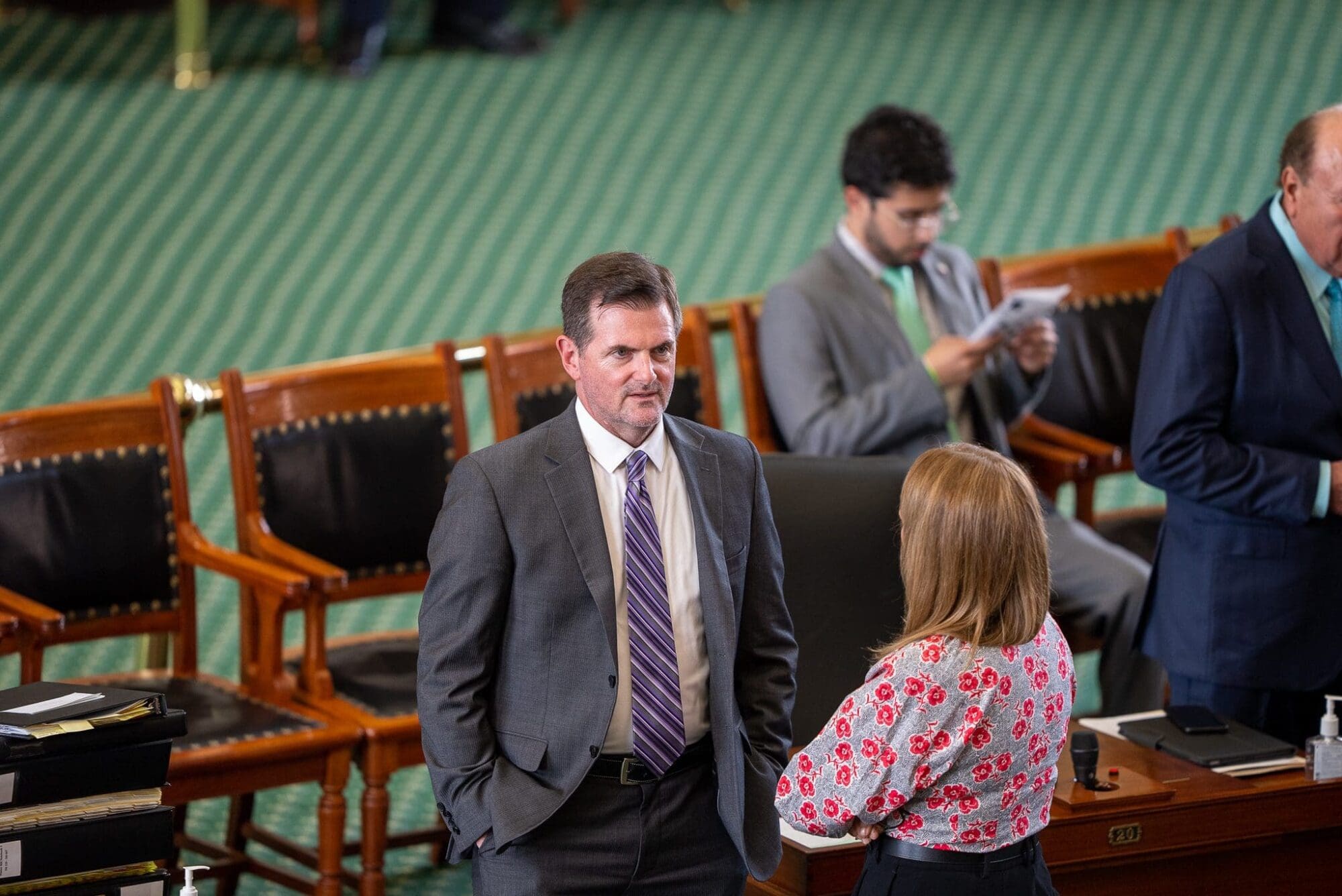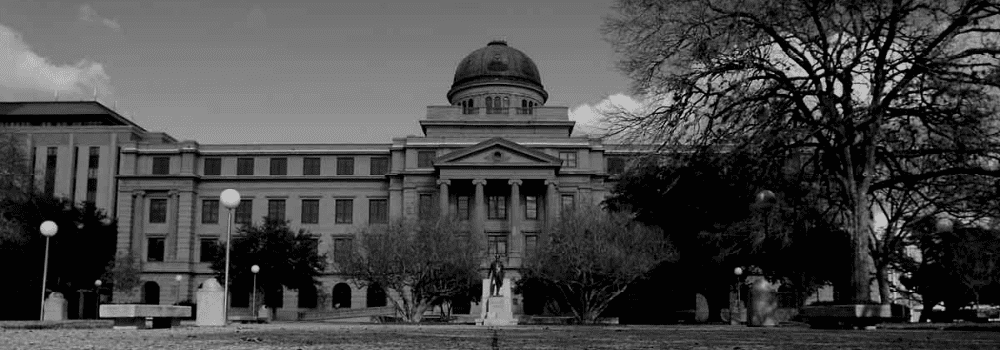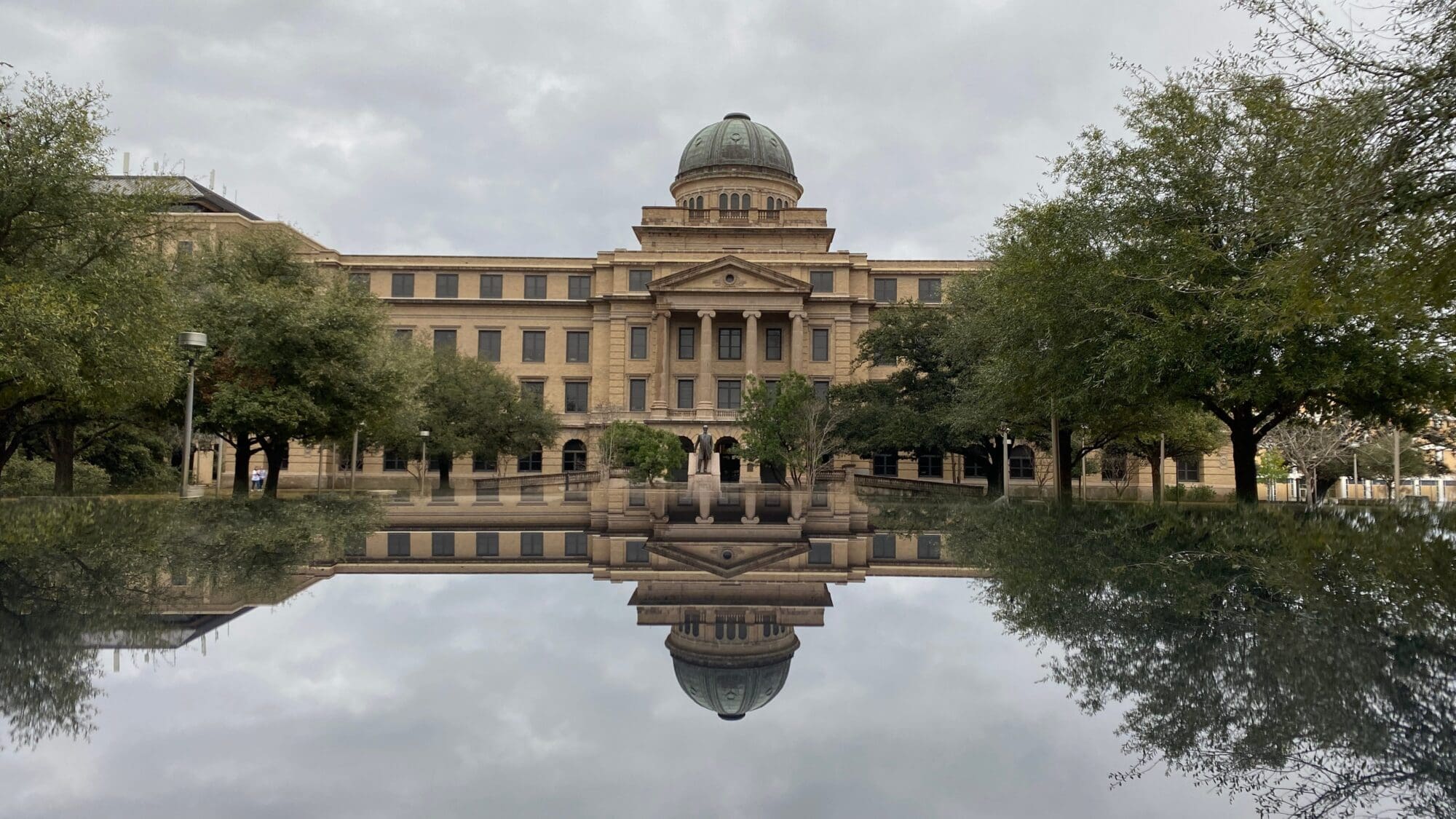A state senator said lawmakers plan to expand the statewide ban on DEI in higher education. The path to doing so involves examining how universities are governed.
Rejection of diversity, equity, and inclusion ideology has picked up steam in Texas and across the nation over the past few years. In 2023, Gov. Greg Abbott signed into law a statewide ban on the ideology’s inclusion in higher education.
In a recent interview, the law’s author, State Sen. Brandon Creighton (R–Conroe), referenced how he and other state senators in the body’s education committee have been following up with universities on their compliance with the law in recent hearings. “We’re making sure that all public universities are following the letter of the law,” he said. “We have pretty powerful enforcement provisions in that bill tied to funding for those universities if they tried to subvert the intent of Senate Bill 17.” Creighton chairs the state senate’s subcommittee on higher education.
Senate Bill 17 is the official name of the DEI ban. It prohibits universities from establishing a DEI office, using DEI criteria in their hiring practices, or requiring employees or prospective employees to attend DEI training. However, it does not apply to academic instruction.
While multiple DEI offices have been closed in universities, the ideology is still alive and well. DEI is in multiple state universities’ strategic plans. In investigations throughout 2024, Texas Scorecard has found it in university classes at Texas A&M and Texas Tech.
Creighton revealed plans to expand the DEI ban. University governance is being considered.
“I think we’re definitely looking into governance for how universities work,” he said. “We’re making sure that they are campuses focused on education and innovation; not on political indoctrination.” Creighton expressed he’s in touch with a large swath of new members and learning their intent regarding expanding the DEI ban.
Public universities in Texas are governed by boards of regents appointed by the governor and confirmed by the state senate. However, many state universities practice “shared governance” with faculty members. This practice gives woke professors opposed to Texas values a say in how these universities are run.
In November, members of Texas A&M’s faculty senate voiced defiance after the board of regents voted to end an “LGBTQ minor” and other “low-performing” programs.
For Creighton, DEI has taken higher education backwards, not forwards.
A KXAN journalist asked him about a report from the Texas Higher Education Coordinating Board that showed academic underperformance by African-American students before the DEI ban. Creighton said this data showed the deleterious effects of DEI. “We saw that across the state of Texas the diversity, equity, and inclusion offices were taking us backwards where even the hiring of minority faculty professors and their recruitment had slid from 3.1 percent to 1.7 [percent],” he said. He believes a better use of taxpayer monies would be funding “better student supports.”
A recent study found “certain DEI practices could induce hostility, increase authoritarian tendencies, and foster agreement with extreme rhetoric.” Establishment media would not cover this story.
Texas Scorecard will continue to examine higher education in the state. If you or anyone you know has information regarding universities, please contact our tip line: scorecardtips@protonmail.com.
No ads. No paywalls. No government grants. No corporate masters.
Just real news for real Texans.
Support Texas Scorecard to keep it that way!





